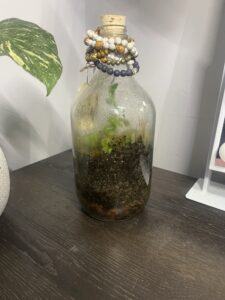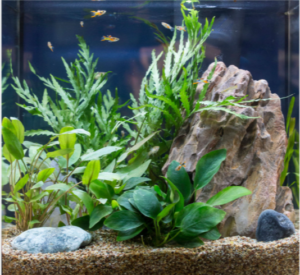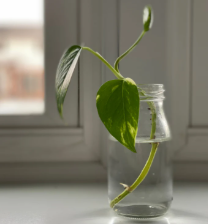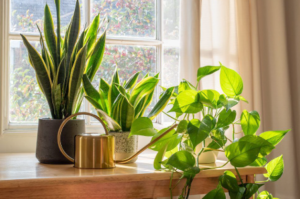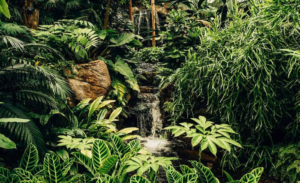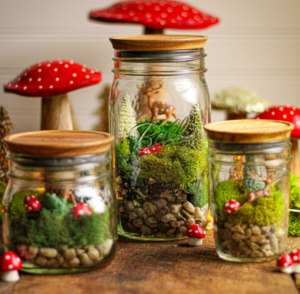In the final week of my learning project I finally have put my work and knowledge all together to make my terrarium. First I grabbed a clear jug I have used from an old homemade brew. While I rinsed out the jug and let it air dry I had started to get my materials ready. Next I got my drainage rocks, charcoal, and soil. I put them in the bottle in layers, first I laid down rocks about an inch thick, then I laid down an inch of charcoal, finally I laid down about two inches to three inches of soil. After that I sprayed the bottle to moisten the soil for prepping the plant to be safely placed inside of the terrarium. Finally I used long skewers to poke holes into the soil to plant the plant into the dirt. I placed the pathos plant into the soil, placing it how I want it to grow. After placing the plant in the glass jar I spritz the bottle to start the humidity process of getting the environment consistently moistened.
Building the terrarium took longer than I thought it would. It took me an hour just to put the soils together in layers. I found it was hard to keep the layers separate from one another while putting the layers in. I had to dump out the layers a couple times as they kept combining. The hardest part was trying not to tip it to the side while doing the layers. The funnel I used at the start was clogging and nothing was working to keep it going at a good pace. Once I used a piece of paper as a bigger area to funnel the soil in it was working a lot better and I could keep it straight up and down.
Putting the plant in with long skewers worked really well. It was easy as it was used like really long sticks to place the plant cutting in gently. It was really fun and enjoyable to put it all together. Making a terrarium has been an activity I have always wanted to do. I had never known how to put it all together to make a successful terrarium. I had also never known how to propagate and that was what was really holding me back. I could not use a plant from a store as it needs to be a little plant to use with healthy and strong roots. Building terrariums will definitely be a new hobby I will be sticking with!
